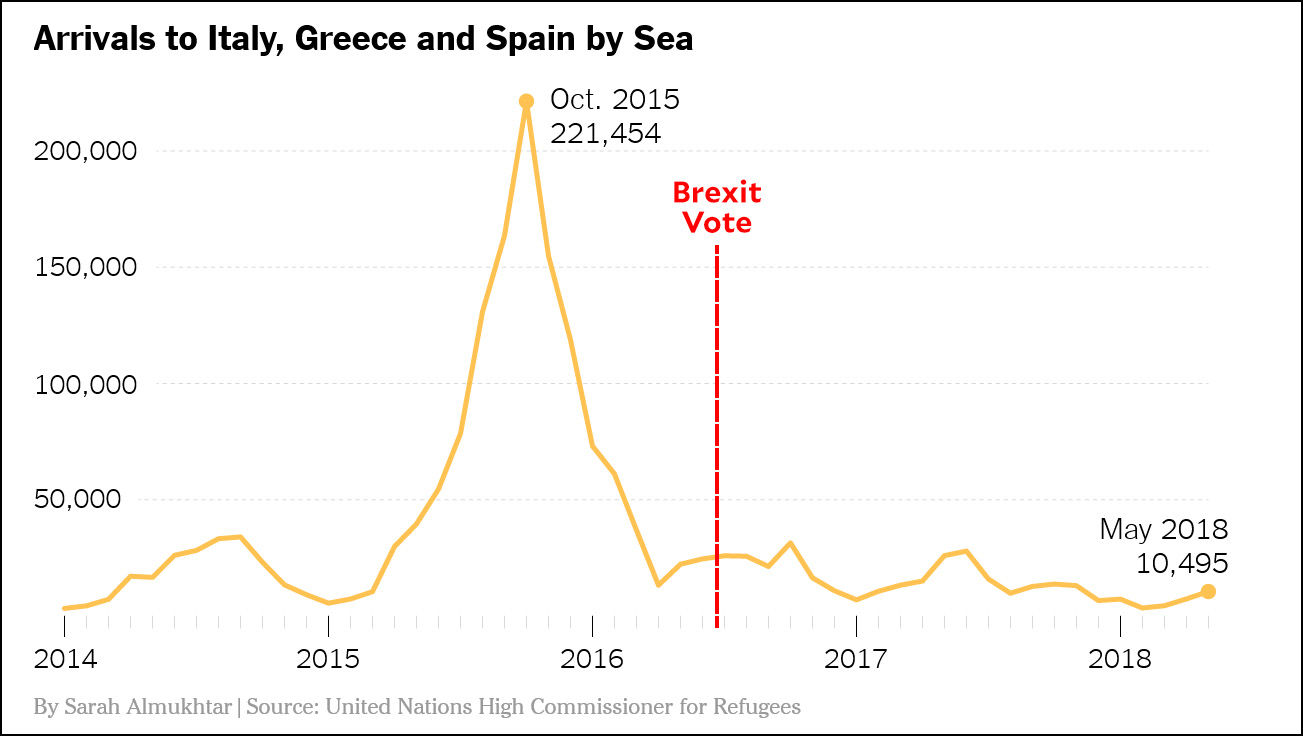The New York Times reports that the great European migrant crisis lasted about one year and has basically been over since the beginning of 2016:
On the beaches of Greece, thousands of migrants landed every day. In the ports of Italy, thousands landed every week. Across the borders of Germany, Austria and Hungary, hundreds of thousands passed every month. But that was in 2015.
Three years after the peak of Europe’s migration crisis, Greek beaches are comparatively calm. Since last August, the ports of Sicily have been fairly empty. And here on the remote island of Lampedusa — the southernmost point of Italy and once the front line of the crisis — the migrant detention center has been silent for long stretches. Visitors to the camp on Monday could hear only the sound of bird song. “It’s the quietest it’s been since 2011,” said the island’s mayor, Salvatore Martello. “The number of arrivals has dramatically reduced.”
Here’s a chart:

It was only a coincidence that the Brexit vote ended up being held shortly after the peak of the crisis while memories were still fresh. A year earlier or a year later and it probably would have lost.
When the histories are written, 2016 won’t be remembered as the start of an era of right-wing populism. It will be remembered as an example of the contingency of events. Brexit passed—barely—because the vote happened to come right after a short-lived refugee crisis. Donald Trump was elected president—barely—because James Comey happened to re-open Hillary Clinton’s email case ten days before the US election. Those two things were the shocks that launched a thousand op-eds about the end of liberal democracy in the West.
But it was all a mirage. The world hadn’t suddenly undergone a sea change. It had just suffered from a pair of unlikely coincidences that we humans—as we do—insisted on interpreting as a pattern. Then we looked around—as we do—for confirming evidence and came up with Marine LePen and Viktor Orbán and Jarosław Kaczyński. This despite the fact that LePen lost by a landslide and both Orbán and Kaczyński had been in and out of government for over a decade and didn’t truly represent anything new. They just enjoyed a short-lived return to power thanks to memories of a crisis.
I may yet be proven wrong. Maybe 2016 really was the start of a new era of harsh, right-wing populism in the West. But I don’t think so. Donald Trump and the others will go away, Brexit will get watered down, and liberal democracy will basically be fine.
For the next decade, anyway. Then the robots will start to take away jobs in large numbers and liberal democracy really will face a crisis. But it’s one we can overcome if rich people decide to pursue their own enlightened self-interest instead of being assholes. Unfortunately, I’m not sure I want to put money on that bet.


















